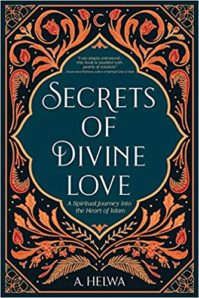“If any do deeds of righteousness be they male or female and have faith, they will enter Heaven, and not the least injustice will be done to them.” (Qur’an 4:124)
“Woman is a ray of God. She is not that earthly beloved: she is creative, not created.” ~Rumi
The great mystic Rabia Al-Adawiyya was once jokingly asked by a group of men, “If women and men are equal in intelligence and spiritual power why are all the prophets of God men?” Rabia replied, “Oh that’s because all the major problems of the world are due to the male ego, so it only made sense!” Mic drop on that comeback! Historically the patriarchy has made a point of attempting to prove the superiority of men over women for centuries, but the Qur’an is very straightforward about the equality of men and women. Both men and women are called to be mirrors of God on Earth and to work together to create harmony and peace for all people. Just as a pomegranate seed cannot grow into a tree without soil, and soil cannot birth from itself pomegranate fruit without a seed, the divine masculine and divine feminine complement one another on the path of blossoming the soul.
Men and women are not physically identical, but they are equal in value in the eyes of God, for the soul has no gender. As the Prophet Muhammad says, “Verily, women are the twin halves of men.” In fact, the word for “Eve” in Arabic is the same as the Hebrew word Hawwaah, which comes from a root word that means “source of life.” In essence, every time we reference Eve, we are reminded that although the prophets of God that were mentioned in the Qur’an were men, without women there would be no prophets born into this world. This is why women are seen as the bridges of creation between Heaven and Earth.
The station of a woman is more than just a counterpart or complement to man, she is a reflection of the divine feminine, the soft and hidden qualities of God reflected in creation. Whereas as the divine masculine is active, outward, and pursuing, the divine feminine is receptive, inward, and in a state of surrender. While both genders have aspects of divine femininity and masculinity, it is the divine feminine whose vulnerability and soft nature has historically been under attack. Fascinatingly enough God describes Himself in the Qur’an as Ar-Rahman which comes from the Arabic root word meaning “womb.” In other words, it is through mercy, softness, and the surrender of womblike femininity that we can approach the Divine.
Even the usage of the word Huwa or “He” in reference to Allah in the Qur’an in Arabic is a word that is inclusive of the feminine and not exclusive. After all, it is in the merging together of the duality of the divine feminine and divine masculine that we experience unity and harmony. May the Divine help us to fan the embers of our divine femininity and celebrate the soft and vulnerable qualities within us with a state of bliss and joy!


This blog is an excerpt from A. Helwa’s recently published best-selling book, “Secrets of Divine Love: A Spiritual Journey into the Heart of Islam.” Her book is available on Amazon.com
#1 Best Seller
About A. Helwa
A. Helwa believes that every single person on Earth is deeply loved by the Divine. She is a writer who has inspired hundreds of thousands of readers through her passionate, poetic, and love-based approach to spirituality. Her popular blog @quranquotesdaily, was established while obtaining her Masters in Divinity, as a means of helping others overcome personal and spiritual struggles on their journey of experiencing divine love.
With over 15 years of experience writing and speaking on Islam and spiritual development, A. Helwa draws from her personal experiences and traditional sources to help her readers access ‘Divine love in everyday life.’

